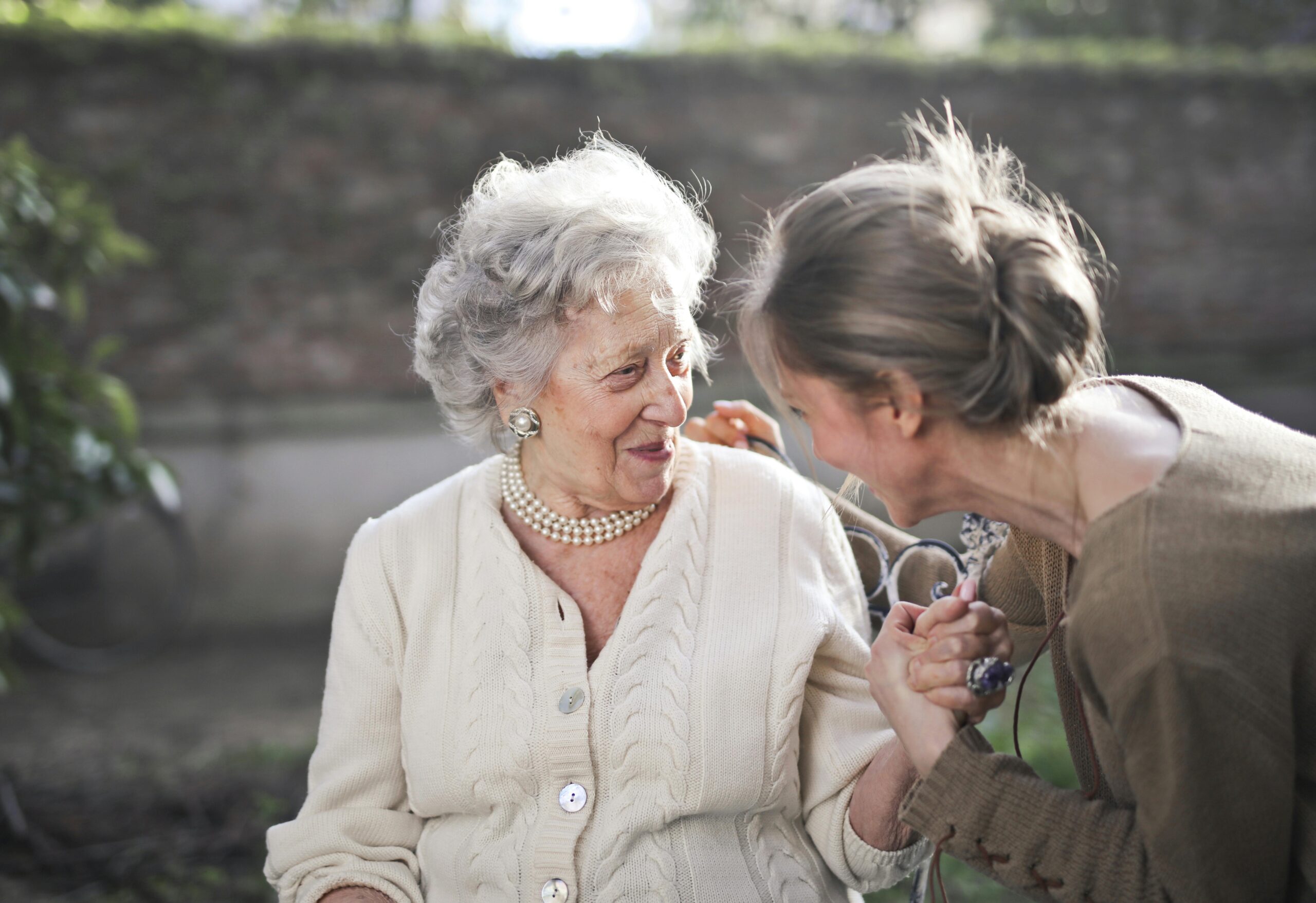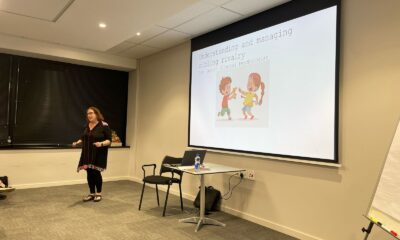
Featured Item

The art of being your parents’ primary caregiver
They’re your strength, your foundation, the people you look up to. Yet, one day, you’ll realise that while they’re still right beside you, they’re no longer who they once were. Though it’s a privilege to have elderly parents, it can be heart-wrenching to watch them grow old.
Not only are many confronting the challenges that come with guiding their parents through old age, they’re also becoming their primary carers, said senior social work supervisor at Sandringham Gardens, Irene Jansen van Rensburg, at a talk hosted by Chevrah Kadisha Community Social Services at the David Lopatie Conference Centre on 31 July.
Studies show that 10% of adults aged 60 to 69 whose parents are still living will serve as their caregivers, said Jansen van Rensburg. That’s because not only do people live far longer than they did in decades past, but few are equipped to support themselves financially past 85 and beyond.
What’s more, the inevitable role reversal that comes with caring for elderly parents often means navigating an emotional minefield. It’s something we and our parents, who find it difficult to admit they need help, are reluctant to face.
“We all wait too long to have the conversation,” said Jansen van Rensburg, “to acknowledge that they’re aging and ask what we can do to help. No-one likes to be told that they’re starting to struggle with things.” It’s something they battle to admit for fear of losing their independence.
That’s why “positive aging”, which means embracing the fact that things change, is important. “It’s about changing thought patterns and attitudes that affect physical and emotional well-being, teaching them the skills to deal with getting older,” said Jansen van Rensburg. Long-held beliefs around aging also need to be challenged, she said, especially the misconception that as people become older, they lose value.
We need to remind our parents what a gift it is to grow older, and remind ourselves what a gift it is to still have them around. Adopting the positive aging mindset starts with encouraging our parents to have a healthy lifestyle. Experts recommend 30 minutes of moderate exercise a day, five days a week.
“The most common struggle older people face is a sense of purposelessness,” said Jansen van Rensburg. As they age, our parents often feel facility or house bound, so getting them active gives them a sense of freedom and boosts mental acuity. This ties into encouraging your parents to take up hobbies that are meaningful to them.
“Having an active and rewarding social life is another key element of aging with positivity,” Jansen van Rensburg said. “We often find that elderly people become isolated because either their friends and family have moved away, or they reach the age where they start passing away. We hear them say often that there’s no point in making new friends because they’re just going to die.”
Yet, spending time face to face with others – and with you, even if it’s just 10 minutes a day – is important. Encourage them to invite friends over for tea or to eat with someone at their retirement home, she suggests. It also gives them something to talk to you about rather than having conversations that revolve around aches and pains.
One thing the elderly must never lose is their identity, Jansen van Rensburg said. “Don’t let them forget that they have a history.” Ask them things about growing up, about life when they first started working, about starting a family. Take an active interest in them, and don’t let them feel forgotten.
Complaining is often synonymous with the elderly, but we need to encourage them to find the joy in each day, Jansen van Rensburg says.
It’s important to assess their needs as opposed to yours. She suggests making a list of what they need support with, including things like preparing meals, collecting pharmacy prescriptions, managing finances, handling their personal hygiene, and accommodating mobility limitations.
Assess whether their daily needs are something they can manage, things you can help with, or whether hiring a qualified carer or moving them into your home or a facility is necessary. “Whatever you choose, make sure that they are included in the decision, she advises.
This isn’t always simple, as people tend to become more stubborn as they age. When it comes to their safety and that of others, as is often the case with continuing to drive, though seniors may be distressed at the loss of independence, there’s no room for argument. Be empathetic but firm.
It’s something we often avoid, but we need to be proactive about discussing their final wishes – a difficult but vital conversation. “Don’t wait for the crisis, see what they want in terms of a living will before they’re ill or unable to speak,” Jansen van Rensburg said. Pick a relaxed moment, and know that not all decisions need to be made at once. It’s a series of discussions.
Regardless of how hands-on you are when it comes to caring for your elderly parents, remember to care for yourself, she said. “It will become one of the most stressful jobs of your life if you aren’t prepared. Be realistic and honest about how much you can help, how much time you can devote to their needs without harming your health.”
Catching up with your work until 02:00 to fit everything in does no-one any favours. “The worst thing you can do is judge yourself for not being a superhero and then trying to prove yourself wrong,” Jansen van Rensburg said. “Burnout can make it difficult for you to prioritise your mental health and set boundaries as a caregiver.” That’s why it’s advisable to get family and friends to pitch in – build a village – you can’t be available 24/7. Through it all, having support, making time for the things you love, feeling joy amid the challenges, and maintaining a sense of humour will lighten the load.










